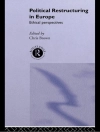The multilateral trade system rests on the principle of nondiscrimination. Unilateral trade preferences granted by developed countries can help beneficiary countries but can create tensions between ‘preferred’ developing countries–typically beneficiaries from pre-existing colonial regimes–and other developing countries. There is also concern about the potential erosion of these preferences through trade liberalization in the importing countries, an issue that has been important in the current negotiations under the Doha Development Agenda of the World Trade Organization.’Trade Preference Erosion’ provides the information needed to make informed assessments of the benefits of trade preferences for developing countries, the risks associated with the erosion of these benefits, and policy options for dealing with these problems. The authors provide detailed analyses of specific preference programs and undertake cross-country, disaggregated analyses of the impact of preferences at the product level. Understanding the likely impacts of these programs and how those impacts are distributed is a precondition for formulating appropriate policy responses. The authors argue that such responses need to go beyond trade policies and need to include a focus on enhancing the competitiveness and supply-side capacity of developing countries.This book is a useful and informative guide for policy makers, non-governmental organizations, and others who wish to better understand the debate on the magnitude and impact of preference erosion.
Carlos Alberto Primo Braga & Bernard M. Hoekman
Trade Preference Erosion [EPUB ebook]
Measurement and Policy Response
Trade Preference Erosion [EPUB ebook]
Measurement and Policy Response
购买此电子书可免费获赠一本!
语言 英语 ● 格式 EPUB ● ISBN 9780821377482 ● 出版者 The World Bank ● 发布时间 2009 ● 下载 3 时 ● 货币 EUR ● ID 5845331 ● 复制保护 Adobe DRM
需要具备DRM功能的电子书阅读器












